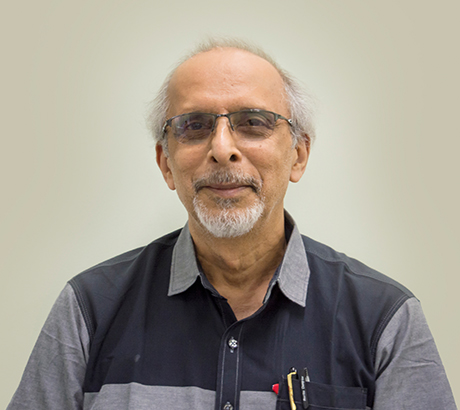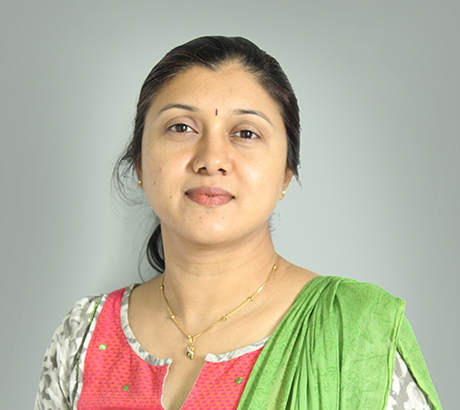Diabetology - A Centre of Excellence
Type 2 Diabetes is the most common form of diabetes in India. It is commonly seen in individuals who are above the age of 40. Some of the risk
actors for developing this type of diabetes are obesity, sedentary lifestyle, unhealthy diet and lack of exercise.
A diagnosis of diabetes is life changing but with the right and timely care and support
system, diabetes patients can lead a happy and healthy life.
The Diabetes Unit at KEMH offers patients the best possible care. We offer a multidisciplinary approach towards diabetes management with coordination between our team of skilled doctors, experienced educators and certified dieticians, all focused on improving the lives of people with diabetes. Our mission is not only to control sugars
but to avoid and treat diabetes complications at the earliest, in order to help our patients
lead a happy and healthy life.
We follow the pentagon of diabetes management; each of its corners is of immense
importance. It includes:
- Diet
- Diabetes Education
- Diabetes treatment with medication
- Regular monitoring
- Exercise
A specialized clinic for Type 1 diabetic patients was created in 1995. Over 900 Type1 patients have been registered in our clinic in the last 20 years, 15% of which are diagnosed before the age of 5 years. On an average, 30 new patients are added every year. Majority of the patients in our clinic are poor.
We provide consultation and health education at nominal costs or free whenever necessary. We also supply free insulin to poor patients and subsidised blood tests for several patients.
Additionally, we provide educational guidance, vocational training guidance, marriage counselling and pregnancy counselling to children with Type 1 diabetes. A major part of our activities are directed towards psychological and social rehabilitation of the patients and their families. We conduct outdoor camps, get-togethers, parent meetings, competitions and trips as part of our clinic activities. Furthermore, we raise funds for needy patients from philanthropic donors, pharma companies (Novo Nordisk, Sanofi India Ltd etc.) and trusts (Mukul Madhav Foundation, Nityaasha foundation etc.)
Our doctors and certified pump trainers have recently initiated an Insulin Pump Clinic, which offers detailed training on insulin pump for management of diabetes.A mobile app,“Madhuraksha- A Pocket Diabuddy” has also been designed by a team at the Diabetes Unit at KEM hospital Pune, which serves as a ready reckoner for those with Type 1 diabetes. It explains basic survival skills and provides meal and insulin dose calculations to facilitate blood sugar control.
Diabetes is one of the leading causes of amputation of the legs worldwide. The primary goal of our Foot Clinic is to prevent and reduce the rate of foot amputations in people with diabetes. Every new patient is screened, to rule out the possibility of nerve damage and circulation damage (vascular disease). Specialized tests include nerve testing by biothesiometry, doppler test for circulation, Harris foot mat for foot pressure study, and others.
In addition, we provide specialized care for patients with foot ulcers (secondary prevention), infections and problems with nerve and circulation damage through advanced technology including VAC therapy, ultrasonic debridement and surgical debridement.
We offer:
- Comprehensive foot examination of every patient visiting the Diabetes OPD
- Foot care education through lectures, subjective counselling and handouts given to patients
- Proactive treatment of pre-ulcers and non-healing ulcers
- OPD services and assistance, e.g. callosity paring, corns paring, ingrown nails pairing, electronic pedicure and complete wound care
- Primary, secondary and tertiary prevention of diabetic Charcot foot
- Footwear and orthotic prescriptions for offloading the wound
Our clinic provides specialized and personalized care for pregnant women with Type 1, Type 2 and gestational diabetes. Our goal is to help pregnant women with diabetes to control their blood sugar levels and lower the risk of diabetes related complications, both for the mother and the baby.
A diabetologist offers medical advice while our expert dieticians and educators offer extensive guidance on lifestyle management (diet and physical activity) and home monitoring of blood glucose. We also offer training on insulin pumps for the blood sugar management of these women.
A weekly follow up is conducted where medical and nutritional management is reviewed. We also arrange a GDM (Gestational Diabetes Mellitus) meet every month. Additionally, we coordinate with the obstetrician and offer assistance for blood sugar management during delivery. Furthermore, we conduct post-delivery follow-up to reassess their diabetes status due to the high risk of developing diabetes in the future.
Stress aggravates diabetes. It raises blood sugar levels, activates fat cells, impairs glucose tolerance, increases insulin resistance and impacts blood pressure. Vice versa, people with diabetes have a 30% higher chance of stress related disorders. Presence of stress interferes with the control of sugar, leading to an increase in the dose of medicines and increased chances of medical complications.
The Clinic is run by a team of psychiatrists and clinical psychologists. The clinic offers evaluation for psychological issues with medical treatment and counselling for stress management.
At the KEMH Diabetes Unit, patients are provided education on how to manage stress in diabetes by:
- Identifying causes for stress
- Providing treatment for depression and anxiety, if present
- Overcoming addiction for substance use, if applicable
- Guiding patients with sleep hygiene, relaxation techniques and learning to manage emotions and relationships
Obstructive Sleep Apnoea (OSA) is a sleep-related breathing disorder most commonly seen in
obese males and is associated with the development of Type 2 diabetes. Patients snore loudly
while asleep and may complain of daytime sleepiness, morning headaches and disturbed sleep
at night. Patients with excessive daytime sleepiness have an increased risk of motor vehicle
accidents compared to the rest of the population.
Untreated sleep apnoea may put you at risk of a number of life-threatening conditions such as
stroke, heart attack or resistant hypertension. If you have a history of any of the above
symptoms, please consult our sleep study OPD today. OSA can be diagnosed with an overnight
sleep study which can be done either in the hospital or at home.
We run a specialised sleep study clinic where our experts diagnose and provide comprehensive
management for OSA.
Services offered:
- Evaluation of breathing and other functions via Nocturnal Polysomnography
- Diagnosis of sleep related breathing disorders including Obstructive Sleep Apnoea (OSA)
- Treatment of OSA – including Continuous Positive Airway Pressure (CPAP) and Bilevel Positive Airway Pressure (BiPAP)
- Surgical intervention for complex sleep issues
- Counselling for lifestyle modification
Rheumatology deals with diseases of the musculoskeletal system, many of which are autoimmune in nature. Rheumatoid Arthritis and Type1 diabetes are both autoimmune diseases; a condition in which your immune system turns against the body’s own healthy cells. Patients with diabetes commonly have musculoskeletal problems (diabetes hand, frozen shoulder, carpal tunnel syndrome, and others).
If uncontrolled, diabetes can affect the muscles and skeleton, leading to joint pain, nerve damage, and other symptoms. Management includes early recognition, pharmacotherapy, physiotherapy and local measures such as intra-articular steroid in the shoulders. Both patients with Type 1 and Type 2 diabetes will benefit.
The primary goal of our team is to restore optimal function and improve quality of life as soon as possible. Our team is well-educated, experienced and well-equipped to tackle all problems. We use an extensive assessment system and employ the latest evaluations and treatment strategies that are based entirely on available evidence. We incorporate strategies that are based on the unique requirements of each individual and discuss all treatment options, ensuring to answer all questions. We spend as much time as is needed, and a therapist is available every step of the way to recovery.
Diabetes is the major cause of kidney disease. As diabetes is a progressive disease, the prevalence of diabetes related kidney disease increases with the duration of diabetes. Kidney disease in diabetes can range from mild derangement of kidney function to major kidney failure leading to dialysis.
To effectively manage kidney disease in a diabetes patient, we employ a team approach of diabetologists and nephrologists, which helps in the early detection and management of kidney disease, thereby reducing complications.
The Diabetes Unit,along with the Renal unit of KEM hospital, Pune offer:
- Combined assessment of patient by diabetologist and nephrologist at the same time
- Detection and management of risk factors for diabetic kidney disease
- special counselling on diet
The Diabetes Unit is equipped with high quality diagnostic and screening equipment to screen and measure the risk factors of diabetes. To name a few: DEXA, Periscope, ABI, Trinetra test, EZ scan, Biothesiometry and ABPM. These tests are done as and when required, and scheduled by appointment.
The Diabetes Unit OPD lab conducts biological sample collection and blood sugar diagnostic facility for outdoor patients. Trained phlebotomist and nursing staff are available for blood collection. Our diagnostic facility provides immediate and accurate reporting of blood sugar by using 2-3 drops of blood.
The unit has been conducting clinical trials since 1999 and contributing to medical science to find better ways to treat various diseases. Over the years, we have participated in over 50 clinical trials of antidiabetic medication and devices.
View more details and list of clinical trials conducted so far:
http://www.kemdiabetes.org/CT-new.html
View more details and other research studies conducted in the unit:
http://www.kemdiabetes.org/new_research.html










